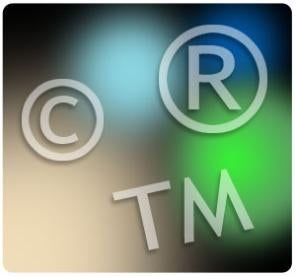Law suits are expensive. Even when the issues seem like they should be straight forward, cost is both a powerful deterrent before the complaint is filed and a significant strategy consideration during the course of a law suit. In a recently decided case, the 3rd Circuit has made recovering attorneys fees in trademark litigation a little easier by adopting the “exceptional case” standard addressed by the U.S. Supreme Court earlier this year for fee shifting in patent litigation.
Back in April, the U.S. Supreme Court held that the Patent Act’s fee shifting provisions allowed district courts to award attorneys fees to the prevailing party in patent litigation. Octane Fitness, LLC v. Icon Health & Fitness, Inc., 134 S.Ct. 1749 (2014). Before Octane, federal courts had held that an “exceptional case” warranting such fee shifting existed only where the party seeking to recover its legal fees could prove by “clear and convincing evidence” that the other party had engaged in “material inappropriate conduct” or that the other party’s case was “objectively baseless” and was “brought in subjective bad faith.” Brooks Furniture Mfg., Inc. v. Dutailier Int’l, Inc., 393 F. 3d 1378 (2005). In Octane, the U.S. Supreme court loosened that standard. After Octane, under the Patent Act, “[a]n ‘exceptional’ case … is simply one that stands out from others with respect to the substantive strength of a party’s litigating position (considering both the governing law and the facts of the case) or the unreasonable manner in which the case was litigated.” Moreover, the Octane court rejected the “clear and convincing evidence” standard for determining whether a case was “exceptional” and held that the much lower “preponderance of the evidence” standard should apply. Thus a new standard for fee shifting in patent cases was born.
Fast forward to September. In Fair Wind Sailing, Inc. v. Dempster, 764 F.3d 303 (3d Cir. 2014), the 3rd Circuit held that the U.S. Supreme Court’s revised fee shifting standard for patent cases should also apply to trademark cases. In doing so, the court noted that the fee shifting language of the Patent Act and the Lanham Act is identical and that, in rendering its decision regarding the Patent Act, the Octane court had relied on interpretations of the fee shifting provisions of the Lanham Act.
While none of this is shocking (and was largely expected), the 3d Circuit did provided a bit of nuanced guidance with respect to the criteria that might be employed by courts in deciding whether to award attorneys fees. Quoting from Octane, the 3d Circuit noted that “a case presenting … exceptionally meritless claims may sufficiently set itself apart from mine-run cases to warrant a fee award.” Octane at 1757. Comparatively, the 3d Circuit concluded that fee shifting might be appropriate in cases where “there is an unusual discrepancy in the merits of the positions taken by the parties.” It may be notable that the 3d Circuit articulation of the standard may not require “exceptionally meritless claims” (as expressly set forth in Octane). Rather, the 3d Circuit seems to construe Octane to allow for fee shifting under circumstances where “there is an unusual discrepancy in the merits.” Thus, in the 3d Circuit, it may be possible to recover attorneys fees where the losing party’s case was not unusually meritless as long as the prevailing party’s case was exceptionally meritorious in comparison to the losing party’s case.
On a final note, the 3d Circuit ruled that the district court (not the appellate court) should be the one to ultimately make the decision as to whether fee shifting was warranted in a particular case. Since the District Court did not decide whether this case was an “exceptional” one, the 3d Circuit remanded the Fair Winds case back down to the District Court to determine whether the case was “exceptional.”
Quick Take Aways:
1. Attorneys fees are now recoverable in trademark litigation under the Octane (Patent Act) test, namely, where the loser’s case was exceptionally meritless or the loser conducted the litigation in an unreasonable manner.
2. In the 3d Circuit, attorneys fees in trademark litigation may also be recoverable where the losing party’s case was not unusually meritless as long as the prevailing party’s case was exceptionally meritorious.
3. Whether a case is “exceptional” so as to warranty fee shifting is to be decided by the District Court.




 i
i

